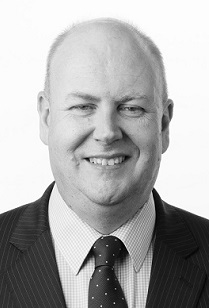Comment / Demanding times
Welcome back to Healthcare Finance for 2017! It’s our first edition of the year, but it already feels like so much has happened. You’d have to be travelling from some sort of deserted island to not be aware of the unprecedented pressure the service has been under. While financially it looks like we might just make it through to the end of March, the English NHS has seen some of its worst performance data, with overheated accident and emergency departments and social care bottlenecks.
We’re all aware of the need to become more efficient, but the future settlement for the NHS looks extremely challenging. I personally feel there will at some point be movement on current funding plans. However, the government seems to be determined at the moment to stick to its guns – although events could force its hand in the coming years.

Much of the ‘savings’ are predicated on a workforce of over one million people receiving 1% pay rises. Yet we know, with Brexit and other pressures in the world economy, inflation could exceed 3% next year. How realistic are 1% pay rises in the face of this? And this is just one of the pressures on that meagre future increase.
We at the HFMA think, like others, that there should be some mechanism to take health and social care out of politics. We’re starting to talk to other organisations about whether a guideline proportion of gross domestic product (GDP) could be set which the chancellor would have to take account of on a yearly basis.
We’re told that our international obligations are to spend 0.7% of GDP on overseas aid. Similarly, the price for staying in NATO is 2% spend on defence. Each year, these figures are explicitly mentioned when the chancellor delivers the budget. So why couldn’t a figure – say 9.5% of GDP – be set for health or a higher percentage for health and social care? It takes those items out of the political mix because everyone has agreed what needs to be spent.
The disadvantage is that it ties the health and social care budgets to GDP, which can go down. So there would need to be some protection mechanism built in. No-one is pretending that the solution is simple. However, it is becoming increasingly clear – particularly given the ageing population – that we need to have a funding mechanism that fully recognises the demands being placed on the huge public priorities of health and social care.
At the HFMA, we will continue to represent your views through our policy documents, social media and through the very good work that our policy director Paul Briddock is doing with the media. We will continue this year to provide the best networking and training events to enable you to be at the top of your game.
I’m very excited about our new qualifications in particular. If you are thinking of doing it, please get in touch or complete the relevant forms. It may well be worth talking to your organisation about any support they can give you.
We think we have developed a unique product that will support individuals in pursuing their career goals, while also enhancing the skills available to the NHS to meet the current and future service and financial challenges.
Related content
We are excited to bring you a fun packed Eastern Branch Conference in 2025 over three days.
This event is for those that will benefit from an overview of costing in the NHS or those new to costing and will cover why we cost and the processes.